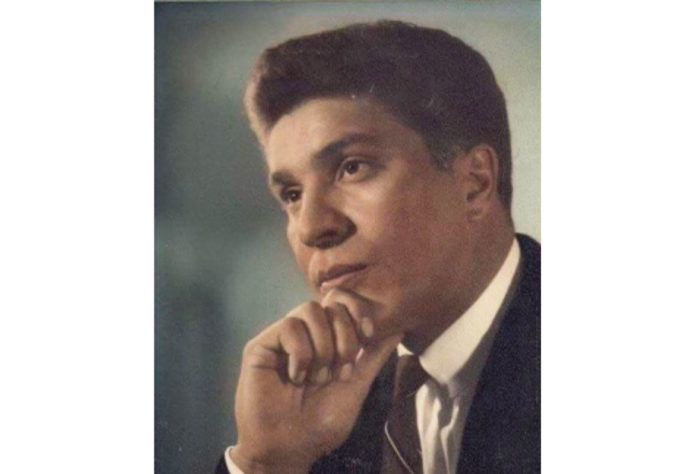ONEIDA, WI – Ernest Stevens, Sr., a dedicated advocate for sovereignty, self-determination, self-governance, and Native rights, passed away on Saturday, June 1st, at the Anna John Resident Centered Care Community facility in Oneida, WI. Born in 1932, Ernie Stevens, Sr. was a prominent figure in the Indian political activism during the 1960s and 1970s.
A U.S. Marine Corps combat veteran of the Korean War, he served four years and earned the rank of Staff Sergeant at 19 years of age. Stevens was recognized for his service and dedication, receiving accolades such as the Korean Unit citation and the Korean Service medal with three battle stars. During his time in Korea, he was part of the well-known conflict, the Frozen Chosen. The Marines who fought there are known as “the chosen few” where nearly 2,500 of the U.S. forces died, some froze to death. The wounded totaled 5,000 and 8,000 suffered frostbite.
Stevens’ illustrious and impactful career includes serving in numerous leadership positions, including as Executive Director of the Los Angeles Indian Center, the Institute for Community Anti-Poverty Corporation, the Inter-Tribal Council of California, the Indian Action Project in Arizona, and the LA Human Rights Commission.
Coming from humble beginnings, Stevens began a profound rise to national recognition at a time of great change in Indian Country. He remained a charismatic figure to many tribes, Indian leaders, and Indian people, particularly in Arizona, where his early professional years left a significant imprint. He held a bachelor’s degree in Business Economics and a Community Fellows Program certification from the Massachusetts Institute of Technology (MIT).
In the mid-1950s, Stevens moved to Los Angeles, where he found great struggles and challenges as a young man fresh out of military service in his country. He would meet Joe Vasquez, a man who would become one of his closest friends in life in the professional and political world. Vasquez picked up Stevens and got him back on his feet. Together, they would work throughout Los Angeles and Indian Country, helping people, promoting Indian business, and moving Indian Country forward.
In the mid-1960s, Stevens moved to Tempe, AZ, and worked as the Executive Director for the Indian Action Project and with tribes in the economic and community development arena. While in Arizona, he was invited by the Ford Foundation to participate in an exchange program that sent him to New Zealand, along with nine other Indian men, to tour Maori native communities and exchange ideas and develop recommendations concerning health, education, housing, socio-economic, economic development, and governance and language issues. This exchange program brought 10 Maori men to Indian Country, and upon completion of their assignment, they all met in New Zealand to debrief and deliver their joint report. Their work would be considered a model and standard for Indian Country and the Indigenous people of New Zealand. His accomplishments and unwavering commitment to Indian Country did not go unnoticed, as evidenced by the Leon Grant Spirit of the Community Award bestowed upon him by the Phoenix Indian Center in 2017.
In 1969, Stevens accepted the position of Executive Director for the Inter-Tribal Council of California, where he is still well-known and revered among California elders for his work. Here, he was recruited by the late Louis Bruce, former Commissioner of the Bureau of Indian Affairs, and he became an integral part of a team of 11 Indian men who would change the course of policy. While at the Bureau, Stevens would serve as Development Director, Community Development Director, and Acting Commissioner. Several key issues initiated and implemented at that time were the concepts of contracting and Indian preference. He played a pivotal role in shaping Indian policy, advocating for tribal self-determination, and significantly contributing to the advancement of Indian Country.
During his tenure at the Bureau of Indian Affairs, Stevens would be elected First Vice-President to the National Congress of American Indians and served as the Executive Director of the American Indian Policy Review Commission, which led to him being confirmed to serve as the first Staff Director to the Senate Select Committee on Indian Affairs. While serving as Staff Director for the American Indian Policy Review Commission, Stevens would lead a staff of over 200, primarily young and educated Indians, to research, compile, and deliver the most comprehensive study regarding Indian Country since the Meriam Report in 1928.
Stevens would later work as the economic development director for the Navajo Nation. Upon returning home to Oneida, he would fulfill his duties as an elected Councilman on the Oneida Business Committee and later as the Senior Manager of the Development Division for the Oneida Nation. Stevens was then recruited to participate in a one-year Community Fellows program in Boston at MIT. Upon his return and while serving as a consultant for Oneida, Stevens suffered a debilitating aneurysm that left him unable to continue his work.
He left a lasting imprint on those he encountered. Whether through his leadership roles in various organizations or his involvement in policymaking at the national level, Stevens, was a driving force for change and progress in Indian Country. He was a visionary leader, a devoted advocate, and a beloved community member. Stevens’ indelible mark on Indian Country will forever be remembered and cherished by all whose lives he touched.














































